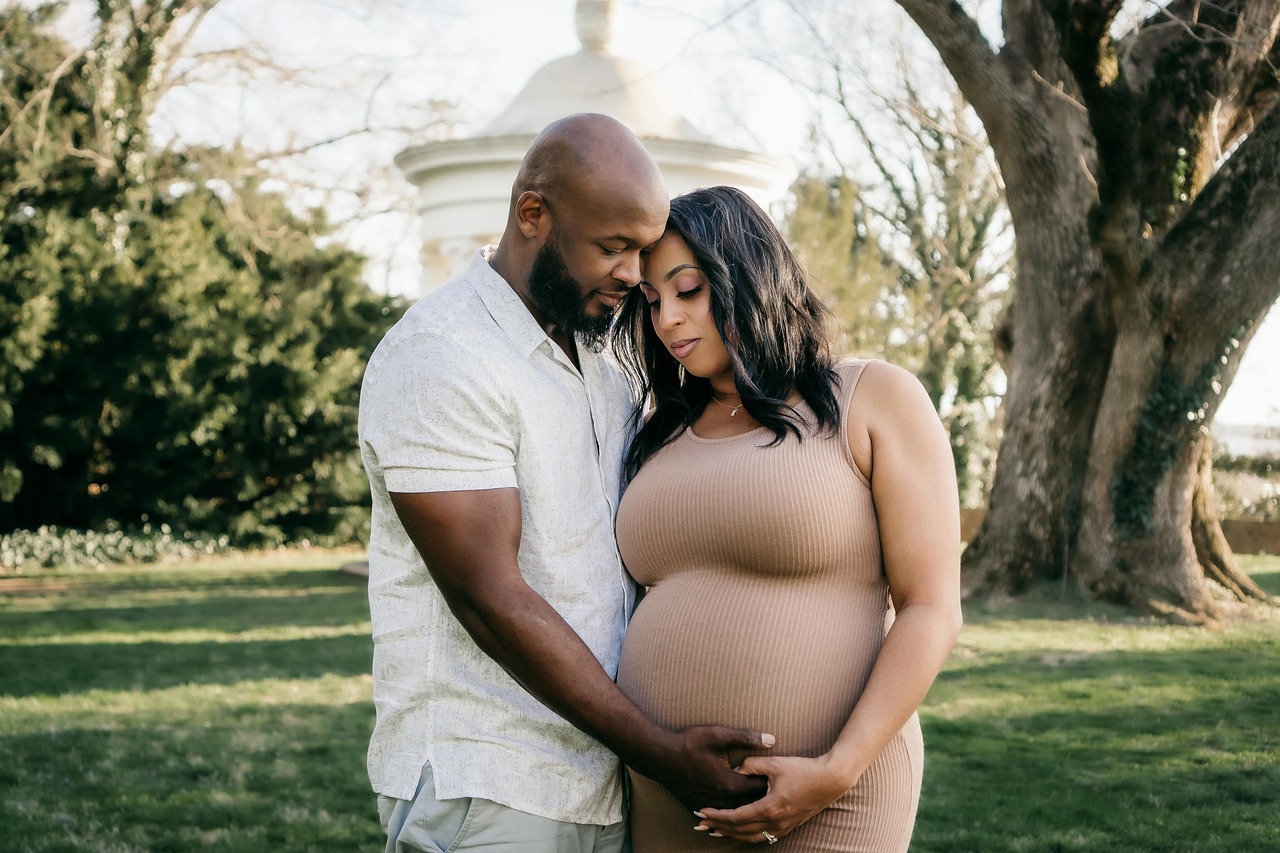Setting relationship goals can feel like plotting a course through uncharted waters, but it’s essential for building a strong, fulfilling partnership. Without a shared vision, couples can drift apart, leading to dissatisfaction and conflict. Defining your relationship goals provides direction, strengthens your bond, and helps you navigate challenges together. This guide will help you identify and achieve meaningful relationship goals, creating a love that thrives.
Understanding the Importance of Relationship Goals
Why Set Relationship Goals?
Relationship goals provide a framework for a healthy and thriving partnership. They’re not about imposing rigid rules, but about creating a shared vision and working towards it together.
- Provides Direction: Goals offer a clear path for the relationship, ensuring both partners are aligned and moving in the same direction. Without defined goals, couples may find themselves drifting apart, each pursuing individual aspirations without considering the impact on the relationship.
- Strengthens Communication: The process of setting and discussing goals encourages open and honest communication. It creates a safe space to share hopes, fears, and expectations.
- Enhances Intimacy: Working together towards common goals fosters a sense of teamwork and connection, leading to increased intimacy and emotional closeness.
- Facilitates Growth: Goals provide opportunities for personal and relational growth. As you strive to achieve your aspirations, you’ll both evolve as individuals and as a couple.
- Increases Satisfaction: Achieving relationship goals brings a sense of accomplishment and satisfaction, reinforcing the strength and stability of the partnership. According to a study by the Gottman Institute, couples who actively work on their relationship are more likely to report higher levels of satisfaction.
Common Misconceptions about Relationship Goals
Many people misunderstand what relationship goals truly entail. It’s crucial to dispel these misconceptions to approach goal setting effectively.
- “They Stifle Spontaneity”: Some worry that setting goals makes a relationship feel too structured and removes spontaneity. However, goals can be flexible and adaptable, allowing for plenty of room for surprises and unplanned adventures.
- “They’re Only for Troubled Relationships”: Setting goals isn’t just for couples struggling with problems. Healthy relationships can benefit from goal setting as a way to enhance their connection and continue to grow.
- “They’re a Sign of Insecurity”: Defining what you want in a relationship isn’t a sign of insecurity. It’s a proactive approach to building a strong and lasting partnership.
- “They’re a Guarantee of Success”: While goals provide a roadmap, they don’t guarantee success. Relationships require ongoing effort, communication, and commitment to navigate challenges and adapt to change.
Identifying Your Core Values and Needs
Personal Values
Understanding your individual values is fundamental to setting effective relationship goals. These values shape your beliefs, priorities, and expectations within the relationship.
- Honesty: Prioritize truthfulness and transparency in all interactions.
- Respect: Value each other’s opinions, boundaries, and individuality.
- Loyalty: Demonstrate unwavering support and commitment to the relationship.
- Trust: Build a foundation of reliability and faith in each other.
- Communication: Prioritize open, honest, and empathetic dialogue.
- Family: Value and prioritize family connections and traditions.
- Example: If honesty is a core value, a relationship goal might be to openly discuss any concerns or issues as they arise, rather than allowing them to fester.
Relationship Needs
Identifying your relationship needs ensures that both partners feel fulfilled and supported. These needs can vary depending on individual personalities and preferences.
- Emotional Support: Feeling understood, validated, and cared for.
- Physical Intimacy: Maintaining a satisfying physical connection.
- Quality Time: Spending meaningful time together, free from distractions.
- Acts of Service: Showing love and appreciation through practical help.
- Words of Affirmation: Expressing love and appreciation verbally.
- Gift Giving: Exchanging thoughtful gifts to show affection. (Note: this shouldn’t be the only way of expressing love)
- Example: If quality time is a key need, a relationship goal might be to schedule a weekly date night or weekend getaway.
Communicating Your Values and Needs
Effective communication is essential for aligning your values and needs with your partner.
- Open Dialogue: Create a safe and non-judgmental space for discussing your values and needs.
- Active Listening: Pay attention to your partner’s perspective and try to understand their point of view.
- “I” Statements: Express your feelings and needs using “I” statements to avoid blaming or accusing your partner. For example, “I feel unappreciated when…” instead of “You never appreciate me.”
- Regular Check-Ins: Schedule regular conversations to discuss how well your needs are being met and make adjustments as needed.
Setting SMART Relationship Goals
What are SMART Goals?
The SMART framework is a proven method for setting goals that are achievable and measurable. Applying this framework to relationship goals increases the likelihood of success. SMART stands for:
- Specific: Clearly define what you want to achieve.
- Measurable: Establish criteria for tracking progress.
- Achievable: Set realistic goals that are within reach.
- Relevant: Ensure the goals align with your values and needs.
- Time-Bound: Set a deadline for achieving the goals.
Examples of SMART Relationship Goals
Here are some examples of SMART relationship goals, broken down by category:
- Communication:
Specific: Improve active listening skills during conversations.
Measurable: Aim to summarize your partner’s points accurately before responding in 80% of conversations.
Achievable: Practice active listening techniques daily.
Relevant: Enhance communication and understanding in the relationship.
Time-Bound: Achieve improvement within three months.
- Intimacy:
Specific: Increase physical intimacy and connection.
Measurable: Schedule intimate time at least once a week.
Achievable: Plan date nights or intimate activities in advance.
Relevant: Strengthen the physical bond and emotional connection.
Time-Bound: Implement within one month.
- Financial:
Specific: Establish a joint savings account for shared goals.
Measurable: Contribute a fixed amount each month.
Achievable: Create a budget and identify areas for savings.
Relevant: Align financial goals and reduce financial stress.
Time-Bound: Open the account and start contributing within two months.
- Personal Growth:
Specific: Support each other’s individual growth and development.
Measurable: Each partner will pursue a personal goal (e.g., learning a new skill, taking a course) within the next year.
Achievable: Encourage and assist each other in pursuing these goals.
Relevant: Promote individual well-being and mutual support.
Time-Bound: Start pursuing goals within three months.
How to Implement SMART Goals in Your Relationship
Implementing SMART goals requires commitment, consistency, and open communication.
- Collaborative Process: Involve both partners in setting and defining the goals.
- Regular Review: Schedule regular check-ins to review progress and make adjustments as needed.
- Flexibility: Be prepared to adapt your goals as circumstances change.
- Celebrate Successes: Acknowledge and celebrate milestones achieved along the way.
- Be Patient: Remember that progress takes time and effort. Don’t get discouraged by setbacks.
Overcoming Obstacles and Maintaining Momentum
Common Challenges in Achieving Relationship Goals
Even with well-defined goals, couples may encounter obstacles that hinder progress. Recognizing these challenges and developing strategies to overcome them is crucial.
- Lack of Time: Busy schedules can make it difficult to prioritize relationship goals.
Solution: Schedule dedicated time for relationship-related activities.
- Communication Breakdown: Misunderstandings and unresolved conflicts can derail progress.
Solution: Practice active listening and conflict resolution skills.
- Conflicting Priorities: Differing individual priorities can create tension.
Solution: Find compromises and negotiate solutions that satisfy both partners.
- Loss of Motivation: Enthusiasm for achieving goals may wane over time.
Solution: Remind each other of the importance of the goals and celebrate successes.
- External Stressors: External factors such as work, family, or financial stress can impact the relationship.
* Solution: Support each other through difficult times and seek professional help if needed.
Staying Motivated and Committed
Maintaining momentum requires consistent effort and a proactive approach.
- Visual Reminders: Create visual reminders of your goals, such as vision boards or written statements.
- Regular Check-Ins: Schedule regular meetings to discuss progress and address any challenges.
- Celebrate Milestones: Acknowledge and celebrate achievements to reinforce positive behavior.
- Accountability: Hold each other accountable for staying on track with the goals.
- Seek Support: Don’t hesitate to seek support from friends, family, or a therapist if needed.
Adapting Goals to Changing Circumstances
Relationships evolve over time, and goals may need to be adjusted to reflect changing circumstances.
- Re-evaluate Regularly: Schedule regular reviews to reassess your goals and make necessary adjustments.
- Communicate Openly: Discuss any changes in your needs or priorities with your partner.
- Flexibility: Be willing to adapt your goals to accommodate new circumstances.
- Prioritize Flexibility: Recognize that life is unpredictable and be prepared to adjust your goals as needed. Maintaining flexibility ensures that your goals remain relevant and achievable.
Seeking Professional Guidance
When to Consider Relationship Counseling or Therapy
While many couples can successfully set and achieve relationship goals on their own, there are times when professional guidance may be beneficial.
- Recurring Conflicts: If you’re experiencing persistent conflicts that you can’t resolve on your own.
- Communication Breakdown: If you’re struggling to communicate effectively.
- Loss of Intimacy: If you’re experiencing a significant decline in physical or emotional intimacy.
- Major Life Transitions: If you’re navigating a major life transition, such as a job loss, move, or the birth of a child.
- Infidelity: If you’ve experienced infidelity or trust issues.
Benefits of Professional Guidance
Relationship counseling or therapy can provide valuable support and guidance.
- Objective Perspective: A therapist can offer an unbiased perspective on the relationship dynamics.
- Improved Communication: A therapist can teach effective communication techniques.
- Conflict Resolution Skills: A therapist can help you develop strategies for resolving conflicts constructively.
- Increased Intimacy: A therapist can help you rebuild emotional and physical intimacy.
- Personal Growth: A therapist can support individual growth and development within the relationship.
Conclusion
Setting and achieving relationship goals is an ongoing journey that requires commitment, communication, and a willingness to adapt. By understanding the importance of relationship goals, identifying your core values and needs, setting SMART goals, and overcoming obstacles, you can build a strong, fulfilling, and lasting partnership. Remember that seeking professional guidance is a sign of strength, not weakness, and can provide valuable support when needed. Embrace the process, celebrate your successes, and create a love that thrives.




